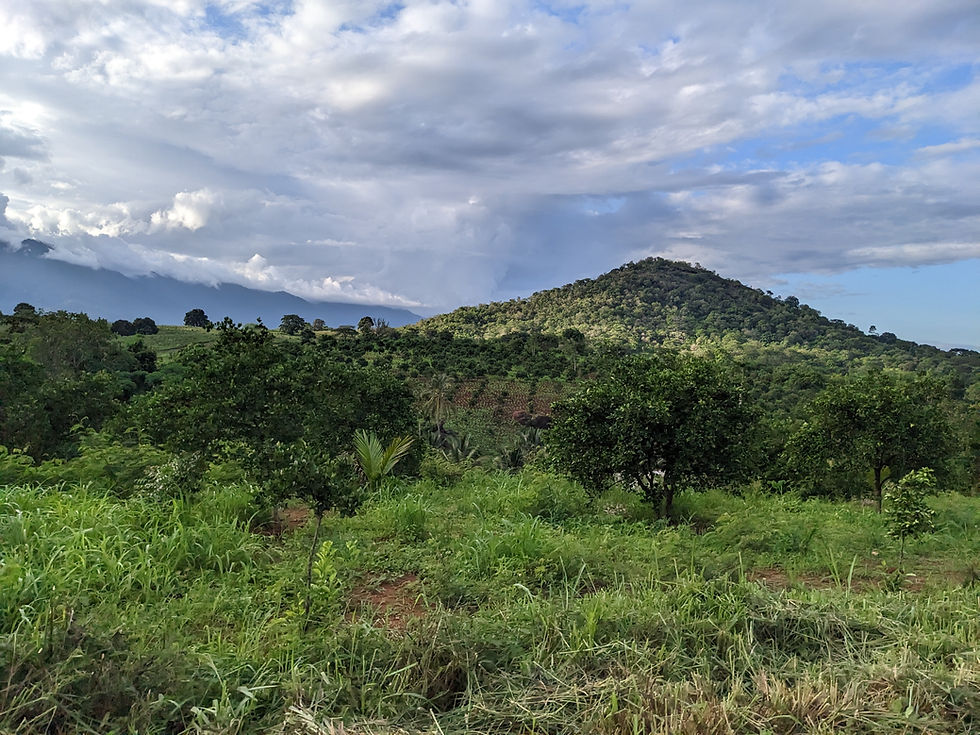Toilets as a Status Symbol (in Rural Tanzania)
- Robius Bagoka

- May 14, 2025
- 4 min read
Let’s be honest. When was the last time you got excited talking about a toilet? For decades in Tanzania, sanitation has been the wallflower at the development party. It sat quietly in the corner while water, education, and roads hogged the dance floor. Toilets? Functional. Forgettable. Often a little embarrassing.

But that story is changing. Across rural Tanzania, something surprising is happening. Toilets are being rebranded. They are not just about avoiding disease anymore. They are now viewed as symbols of pride and respect. We have seen a latrine become a fashion statement. A tiled slab can become a symbol of success. And it is not just infrastructure; it is culture.
From Shame Spot to Status Symbol
Several years ago, many Tanzanian communities like Singida and Dodoma didn’t discuss toilets. Latrines were made of dried grass or sticks tucked away in corners. Sometimes people shared toilets. Sometimes… they avoided them altogether. But the real problem wasn’t mud walls. It was the mindset. Toilets were hidden and taboo. They were an afterthought, not an asset.

The Rise of the Modern Toilet
Instead of lecturing communities with hygiene stats and donor-funded jargon, campaigns like Nyumba Ni Choo campaign, (A house isn’t a home without toilet) and Mtu ni Afya – National Sanitation Campaign (Man’s Health) went for the heart. They made sanitation aspirational.
Soon enough, teachers and pastors started showing off their polished porcelain as if it were high society. At weddings, guests whispered about whose toilet had tiles. Leaders bragged about the improved toilet at village meetings as a badge of progress.
Think toilets can’t be sexy? In Dodoma, you’re not marriage-ready until you’ve got a well-ventilated toilet. And this cultural shift isn’t just fun, it’s effective Nyumba ni Choo campaign. In Njombe, Kilimanjaro, and Iringa, improved toilets are sprouting like sunflowers after the rain. In Moshi, they come with flower beds and pastel paint jobs. In Iringa, traditional elders now insist that any self-respecting couple starts their marriage with a decent toilet.
What’s Driving This Shift?
It is not just about health. Behavioral economics tells us that status is a powerful driver. People will do things not because they have to, but because they don’t want to be left behind. In some villages, you can’t host community events or run for local leadership if you don't have a proper toilet. And if your toilet’s got tiles? You might win a village award.
In many Tanzanian communities, the desire for social recognition has become a significant motivator for improving sanitation facilities. Owning a modern, well-maintained toilet is now associated with dignity, respect, and social standing. In Njombe, the latrine coverage jumped from 7.5% in 2014 to 99.8% in 2018, thanks to strong community enforcement and pride-based messaging.
This shift is evident in the region, where improved latrines have become symbols of privacy, convenience, and dignity. Villagers express concerns about the health implications of neighbors lacking proper sanitation, leading to community-driven enforcement of sanitation standards.
In Singida and Dodoma, households with improved toilets are given preferential treatment for registering their children in schools, applying for livestock loans, and receiving wedding approval. Why are toilets still considered charity when they’re fashion statements in Tanzania?
At the heart of this transformation is Mtu Ni Afya - a national SBC campaign rewriting the rules. It is turning toilets into icons. Forget sterile health leaflets - if it’s aspirational, people will follow.
With influencers like MrishoMpoto, poet, artist, and the campaign’s brand ambassador flashing his home toilet like it’s a trophy, the message is loud and clear. A toilet isn’t something you hide. It’s something you show off. During roadshows and radio interviews, musicians, and even local officials casually drop toilet flexes like rappers name-drop designer brands.
Households, schools, transport hubs, and even entire districts with 100% improved toilet coverage don’t just get a certificate. They get celebrated, publicly and loudly. Toilets have become part of Tanzania’s social fabric, a new kind of ID card. Having an improved toilet doesn’t just mean you’re healthy. It means you’re somebody.

What Does This Mean?
Maybe we have been doing it wrong. Maybe development isn’t about charity drives or health warnings. Maybe it is about tapping into pride, identity, and, yes, style. You don’t want to be left behind. Rebranding toilets in Tanzania shows that people don’t just want basic services. They want to feel seen, valued, and aspirational.
It is time to stop framing toilets as pitiful needs. In Tanzania, they’re already symbols of progress. And if we’re paying attention, they might be the future of development communications: cheeky, culture-driven, and community-owned.




I am interested to work with you as a WASH PROJECTS SPECIALIST